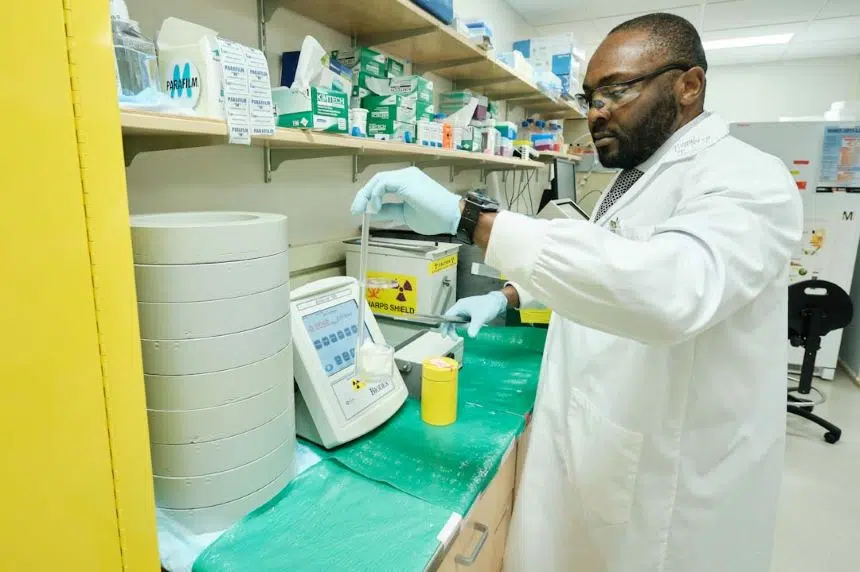Two University of Saskatchewan doctors hope two new breast cancer treatments they’re developing will drastically decrease the number of deaths from the disease.
Radiopharmacist Dr. Humphrey Fonge and his co-applicant Dr. Ron Geyer were awarded nearly one million dollars from the Canadian Institutes for Health Research to develop and test the therapies.
The drugs are being developed to target Triple Negative Breast Cancer (TNBC), which mainly affects women under the age of 50, and Human Epidermal Growth Factor Receptor-2 (HEGFR-2) cancer.
At this point, there is no effective drug treatment for TNBC. If chemotherapy or radiation fails, the only option is palliative care.
Together, those two make up about 50 per cent of all breast cancer cases in Canada
Dr. Fonge says the goal is to force cancer cells not to become resistant to the new therapies.
“This new approach that we are designing is going to make the cancer cells not to be able to develop resistance to the drug, which is often the case in up to 90 per cent of breast cancers, where you see patients; they are doing fine, they are responding to treatment, and then suddenly they don’t respond,” he told 650 CKOM.
Dr. Fonge says the research is focused on developing new radioactive drug molecules that can simultaneously attack both cancers in more than one way, which has never been done before.
The goal is to also find out whether if a patient’s cancer comes back after a period of remission. Right now, the two scientists are testing their therapies on patient cancer cells and in mice.
Dr. Fonge hopes that in three years, they’ll be able to begin Phase One clinical trials involving patients. Some of the research is being done at the Saskatchewan Centre for Cyclotron Sciences.







